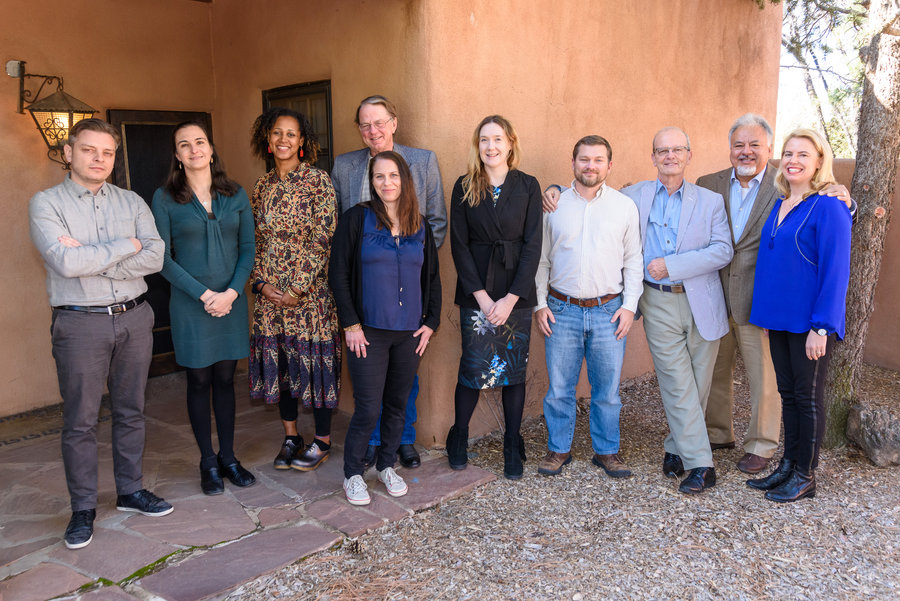A World of Walls: Why Are We Building New Barriers to Divide Us?
Co-chaired by Laura McAtackney and Randall H. McGuire.
April 17–21, 2016
A World of Walls: Why Are We Building New Barriers to Divide Us?
In the 21st century, walls appear to supply simple solutions to global problems of violence, human movement and crime. The simplicity of walls makes them powerful tools for politicians who invoke them to resolve complex and intractable issues; but, in almost all contemporary cases, walls accentuate divisions between peoples, they endanger lives, they heighten privilege and they enrich the few. This seminar’s focus on walls offered a materialist emphasis that goes beyond the well-worn terrain of borders by bringing together scholars from a wide variety of disciplines to explore key issues that wall construction provokes.
The seminar examined a variety of case studies from a range of locations and perspectives to try to find some common ground between a cross-disciplinary group of open-minded scholars, working in various locations, across a multitude of scales and with different disciplinary insights. The case studies included the US-México Border Wall (Michael Dear, Miguel Diaz-Barriga, and Margaret Dorsey), gated communities in Puerto Rico (Zaire Dinzey-Flores), peace walls in Belfast, Ireland (Laura McAtackney), the West Bank Wall in Israel/Palestine (Amahl Bishara), and the Berlin Wall (Anna McWilliams). In addition, Randall McGuire presented on the history of walls and Reece Jones did a comparative analysis of border walls in a global context.
Many basic questions about walls were explored. They covered: 1) what are walls, 2) how do they materialize, 3) where do they materialize, 4) how are they used, 5) how are they subverted, 6) what is their future, and 7) what alternatives exist? No ready answers were forthcoming. However, seminarians did agree that walls may reveal and amplify but that they do not solve global problems of violence, human movement and crime.
Laura McAtackney, Chair
Associate Professor, Department of Sustainable Heritage Management, Aarhus University
Randall H. McGuire, Chair
Distinguished Professor, Department of Anthropology, Binghamton University
Amahl Bishara
Assistant Professor, Department of Anthropology, Tufts University
Michael James Dear
Professor, Department of City and Regional Planning, University of California, Berkeley
Miguel Diaz-Barriga
Chair and Professor, Department of Sociology and Anthropology, University of Texas, Pan American
Zaire Dinzey-Flores
Associate Professor, Department of Sociology, Rutgers University
Margaret Ellen Dorsey
Associate Professor, Department of Sociology and Anthropology, University of Texas, Pan American
Reece Jones
Associate Professor, Department of Geography, University of Hawai’i at Manoa
Anna McWilliams
Professor, Department of Archaeology, Södertörn University
Dimitris Papadopolous
Postdoctoral Research Associate, Institute for Religion, Culture, and Public Life, Columbia University
Generous support provided by the Annenberg Conversations Endowment
